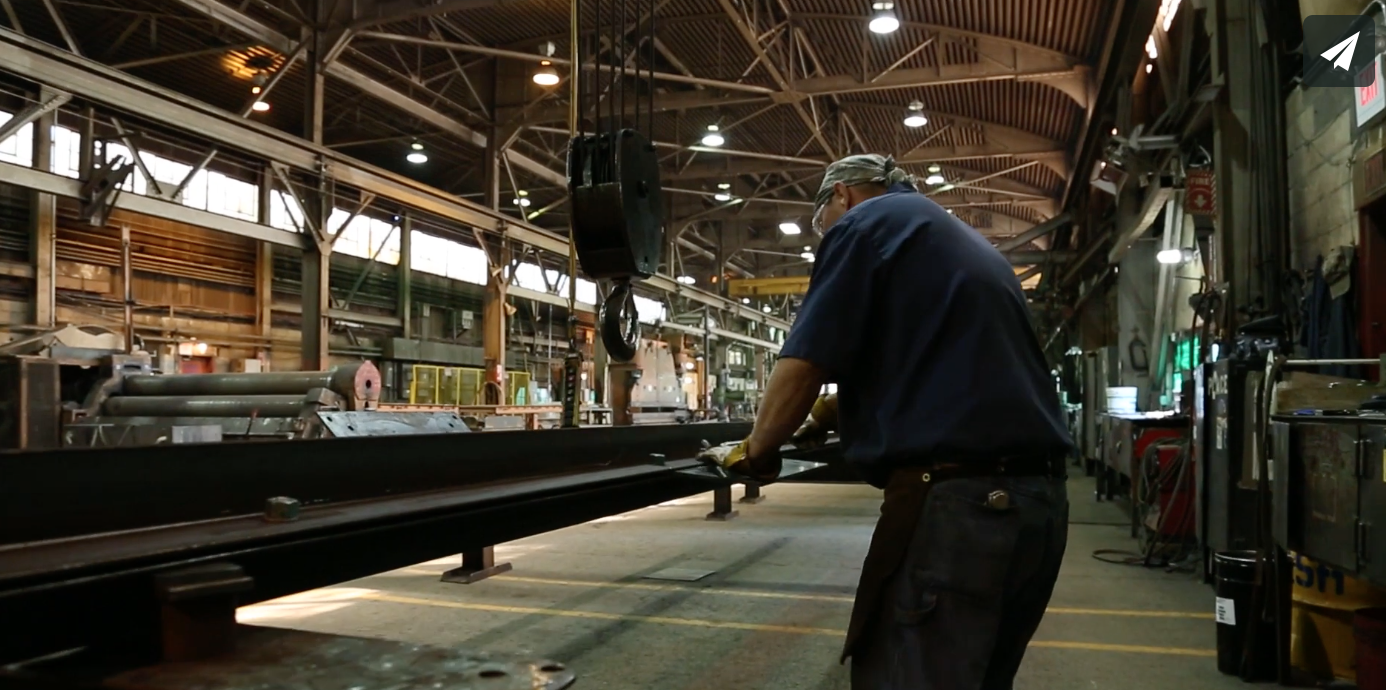Industrial Resources, Inc., is now certified with the American Institute of Steel Construction (AISC) of a “Standard for Steel Building Structures.”
“All the welding and fabrication that comes out of our shop meets the rigorous quality standards published by the AISC that is accepted all over the world,” said Charles Miller, Industrial’s president. “This certification sets us apart from the pack.”
“There are so many things you have to maintain quality control in associated with a steel construction project apart from the paint and weld,” said Phillip Burnside, Industrial’s quality control manager. “This accreditation includes the whole steel construction process from beginning of the project to the end.
“The process starts when a project is awarded, the design engineering and detail engineering begins and selecting suppliers for the steel components to start the fabrication. When the material is shipped and unloaded, it has to be visually inspected by our receiving clerk, and he has to sign a material receiving report to verify that the material was conformant to what was ordered and there were no damages or non-conformities to the steel. We also receive Mill Test Reports for all steel and bolts that are ordered.
“Extensive electronic records are kept, which is required by the AISC. The process then continues when the steel is picked up outside and starts through the shop for the fabrication process.”
All equipment and machines associated with the fabrication process have to be calibrated and maintained so when the AISC performs their audits, they can verify you’re doing everything outlined in the code of specifications.
Now that Industrial Resources is accredited, the AISC will perform annual external audits. There are only three accredited companies in West Virginia.
“The certification also includes the detailing,” Miller said. “After the engineers design the structure, we have to make detail and erection drawings that show the fabricators how to manufacture it and erectors how to construct it. The AISC has standards for detailed drawings to have appropriate welding notes to ensure what is on the detailed drawing is what is to be fabricated.
“When we deliver a steel construction project to a customer, we can provide certifications for all the material that went into the project with electronic copies of the Mill Test Reports for steel and the manufacturing lot numbers for all bolt assemblies. We can also provide electronic copies of all welding, blasting, ambient temperature conditions and dry film thickness inspection reports for the welding and painting process. If a company has a specific paint thickness requirement, every piece will be measured and verified.
“This process and procedure we go through confirms we have used the right nuts and the right bolts. We also know what their strength is following a required bolt testing procedure. There is no question we know what we have. We can back up our quality products. If there’s a question about a piece of steel or bolt, we can find them as referenced on a detail drawing and determine if we fabricated it correctly.”
Industrial Resources is continuously measuring and calibrating the equipment they use. This certification holds them accountable and raises their quality standards to a different level.
Industrial Resources has been a leading provider of engineering, design, fabrication and construction to the coal industry since 1946.

“We have the ability to conduct any type of non-destructive testing,” Burnside said. “Even though we inspect all of our welds, the customer may want non-destructive testing completed for a water type vessel, for example, to make sure there are no pinholes, and it will not leak.”
Different types of non-destructive testing can be conducted, which include, mag particle, ultra-sonic and dye penetration testing. These tests are advanced technical procedures to check welds to make sure they are watertight and have no deficiencies whatsoever within the weld.
“This has been a significant training process for our welders,” Burnside said. “The welding test our welders have taken with the various Welding Procedure Specifications and qualifications not only include visual examinations of the weld, but also are comprised of a tensile test, which is a test that tries to pull the weld apart. When pulled apart, the break has to be in the non-welded area of the steel. The steel can fail, but the weld has to hold. They also conduct a bend test to the welded metal coupon. Once again, the non-welded part of the metal can separate in the bend, but not the weld itself.”
“We went through the AISC audit very strong,” Burnside said.
Quality Management Company, LLC, conducted the AISC audit.
Industrial Resources provides bulk material handling systems and coal preparation plants for their customers and is a turnkey contractor that designs, details, engineers, fabricates, and constructs custom facilities such as overland conveyors, transshipment facilities and material processing plants.
They can serve any customer that needs to move materials, including coal, salt, grain, minerals and along with oil and gas.
Their corporate office is located in Fairmont, W.Va., and their division engineering office is located in Carnegie, Pa. For more information, visit www.Indres.com or call 304-363-4100.
{{cta(‘dca90b52-c92b-44dd-a23a-136ca4552713’)}}
